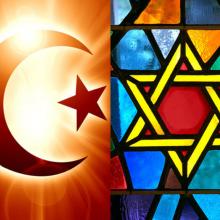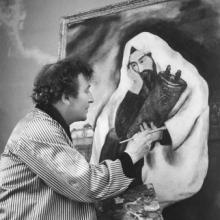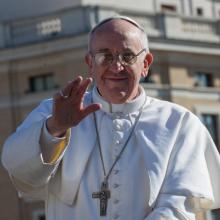american jewish committee
The day after President-elect Donald Trump appointed a man accused of anti-Semitism and Islamophobia as his chief strategist, two of the nation’s largest Jewish and Muslim advocacy groups formed an unprecedented partnership to fight bigotry.
The American Jewish Committee and the Islamic Society of North America, on Nov. 14, launched the new national group: The Muslim-Jewish Advisory Council. Though Jewish and Muslim groups have cooperated before, the size and influence of these two particular groups — and the prominence of the people who have joined the council — marks a milestone in Jewish-Muslim relations.
Religious leaders agree the Islamic State — also known as ISIL or ISIS — must be stopped. Their struggle is how best to do it.
“As mainstream religious leaders of different faiths get together, it strengthens the voice of moderation,” said Ibrahim Hooper of the Council on American-Islamic Relations, the nation’s largest Muslim advocacy group.
A group of mainstream Muslim scholars sought to strip the Iraqi and Syrian militants of any legitimacy under the cover of Islam in an open letter in Arabic issued Sept. 24.
U.S. Christian leaders have also spoken out and say they hope to dissuade youth from joining the Islamic State ranks by developing an alternative world view that counters the group’s religious claims.
“To offer a different world view endorsed by religions, as well as governments, in the long term will go a long way to defeating its appeal to those who are looking to join them,” said Antonios S. Kireopoulos of the National Council of Churches. The council represents about 45 million Christians, from mainstream Protestants to “living peace” congregants.
Recent comments by Pope Francis about the conflict rocking the Middle East have left some religious leaders mixed about his intent.
The Presbyterian Church (USA) voted Friday to divest church funds from three American companies it cited for profiting from the oppression of Palestinians within Israel’s occupied territories.
The 310-303 vote of the church’s General Assembly in Detroit marks a victory for divestment supporters both within and without the 1.8 million-member PCUSA, now the largest American church to embrace divestment as a strategy to pressure Israel to return its illegally held lands.
The issue has roiled the church for the last decade, and during a more than three-hour debate, many lamented the divisiveness and noted how many around the world — in the U.S., Israel, and the Palestinian territories – would be watching.
Novelist Chaim Potok captured the strain of transition from religious traditionalism to artistic expression in the fictional character Asher Lev. Asher, a young painter prodigy and son of a Hasidic luminary, is drawn to a Brooklyn museum where he surreptitiously views crucifixions and nudes. He then goes on to paint such scenes.
Asher’s mother tries to understand her son’s artistic longings, yet says in exasperation, “Your painting. It’s taken us to Jesus. And to the way they paint women. Painting is for goyim, Asher. Jews don’t draw and paint.”
Asher responds, “Chagall is a Jew,” but his mother cuts him off.
“Religious Jews, Asher. Torah Jews. Such Jews don’t draw and paint.”
Returning from a trip to Europe, Asher’s father sees the crucifixion drawings. In a rage, he asks his son if he knows “how much Jewish blood had been spilled because of that man?”
In his first official meeting with a Jewish delegation, Pope Francis on Monday reaffirmed the Catholic Church’s condemnation of anti-Semitism and vowed to further deepen Catholic-Jewish relations.
“Due to our common roots, a Christian cannot be anti-Semitic!” he told a delegation of the International Jewish Committee for Interreligious Consultations, the Vatican’s official partner for interfaith dialogue with the world’s Jews.
In his speech, Francis stated that the church condemns “hate, persecution, and all manifestations of antisemitism.”
The New York City Commissionon Human Rights is suing ultra-Orthodox Jewish business owners in Brooklyn because they posted signs calling on customers to dress modestly in their stores.
The commission said the owners, whose businesses are located in an ultra-Orthodox neighborhood, violated human rights law with signs that read: “No shorts, no barefoot, no sleeveless, no low-cut neckline allowed in this store.”
Ultra-Orthodox Jews practice a strict form of Judaism; men, women and older children are expected to wear clothes that cover their arms, legs and necklines.
World Jewish Congress president Ron Lauder seems to think he's found the answer. It's him.





